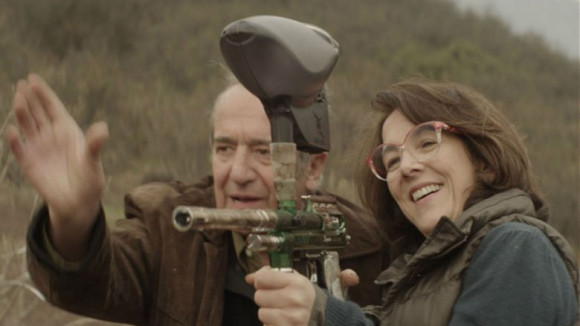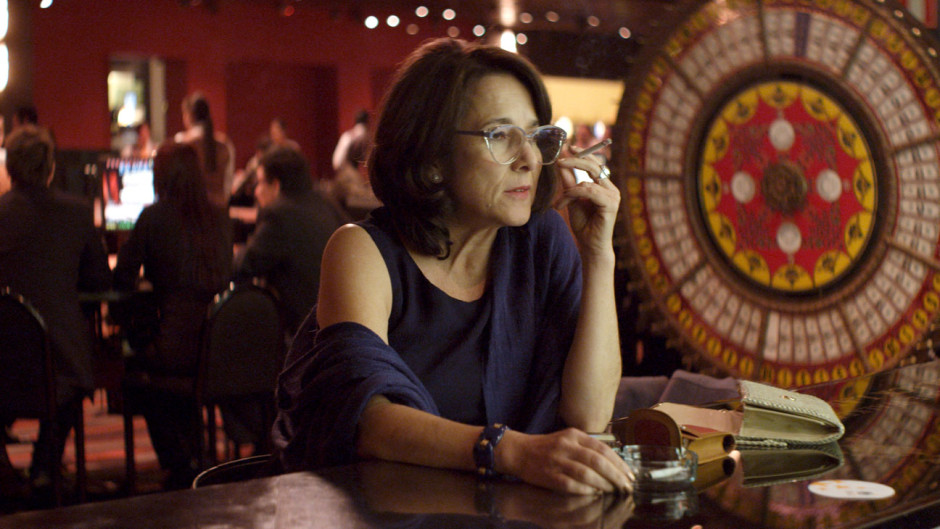A dowdy middle-aged woman nurses a drink in a singles club in Santiago, Chile. She looks vulnerable and lonely. She perks up as she dances with an old friend, but when she leaves the noisy, smoke-filled club, she is still utterly alone.
Gloria, the woman in question, is a divorcee with two grown children. Plain looking, lively and vivacious, she seeks the companionship of a man and, if possible, true love. But since her divorce more than a decade ago, she has not been able to achieve these goals.
As she drives to work the following morning, she hums exuberant, deeply-felt Spanish songs about romance. Gloria has not given up on life, though the struggle remains disappointingly difficult.
Sebastian Lelio’s lovely film, Gloria, which opens in Toronto and Vancouver on Feb. 14, is at once infused with sadness and hope. Gloria, portrayed by Paulina Garcia in a bravura performance, has been somewhat worn down by her failure to land a suitable companion. But she’s committed to that quest and does not succumb to self-pity.
Gloria, too, is a busy lady, as the next few scenes suggest. She visits her son, whose infant has come down with a cold. She goes to exercise class to keep slim and trim. She keeps in touch with her daughter. But at the end of the day, she’s a solitary figure, going back to an empty apartment, where a white cat greets her with a raised tail and a meow.
As she lies in bed, the camera pans on poor Gloria, who’s alone again. It’s a searing picture of loneliness and, perhaps, despair.

Back at the club some days later, she meets Rodolfo (Sergio Hernandez), who has had his eye on her all night. Recently divorced, he’s in his late 50s or early 60s, an unglamorous figure who owns an amusement park.
Gloria likes Rodolfo sufficiently well to invite him back to her flat, where they embrace. As she undresses him, she unzips a corset around his waist. This is an interesting touch, Lelio’s knowing nod to the ravages of aging and the allure of vanity.
Their love-making is remarkably candid and erotic, yet tasteful and restrained. Lelio is not pandering. He’s showing us that you’re not over the hill after a certain age. Sex is not only for the young, but for the young at heart.
As their relationship develops, Rodolfo opens up, disclosing his recent medical history and reciting poignant poetry. These tender moments move her to tears, but do not blind her. Gloria can’t understand why he hasn’t already introduced her to his two daughters. His answer seems strange. I don’t want them to think I’m a dirty old man, he replies.
Rodolfo, whom Hernandez portrays with reserve and passion, disappoints Gloria yet again. She introduces him to her family and friends, and he expresses gratitude for the opportunity to meet them. But toward the end of the evening, he confounds and angers Gloria.
For Gloria, Rodolfo’s odd behaviour is merely the tip of an iceberg. Her daughter’s departure abroad, plus the news from her doctor that she has glaucoma, saddens Gloria. But in an abrupt turn, Rodolfo suddenly reappears. He and Gloria head for a resort, where they make love. In this fairly explicit portrayal of middle-aged sex, there is frontal nudity.
Remaining true to form, Rodolfo sends Gloria into another funk. She refuses to be battered by this setback, particularly after seeing a white peacock in full feathered regalia. The metaphor is apt. Gloria, far from defeated, has much to offer the right guy.
In Gloria, Lelio explores the landscape of love and romance among seniors — a rarely broached topic in cinema — with sensitivity and empathy. In virtually every frame, his skills as a director shine through, but the film basically belongs to Garcia.
